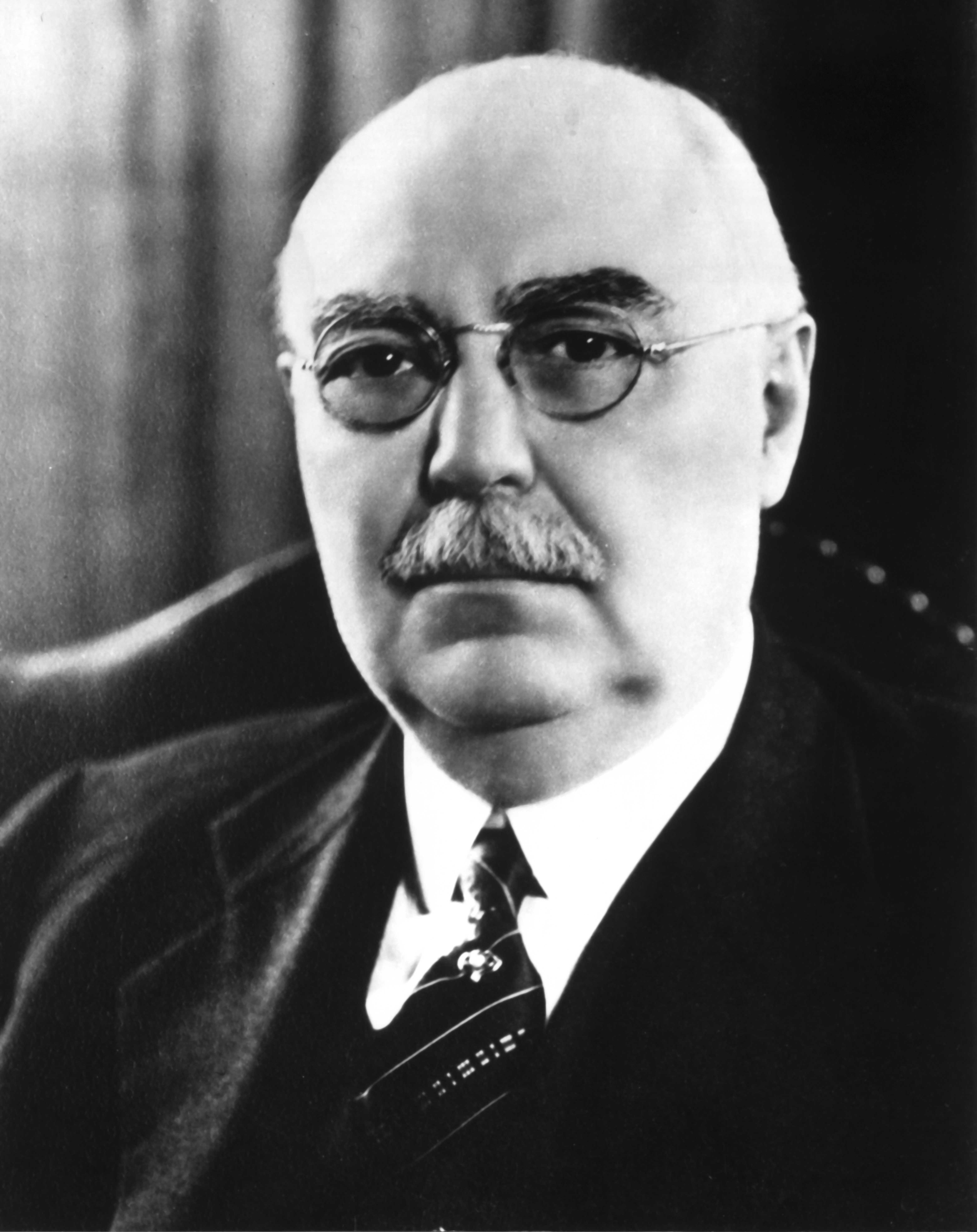Awards
- Honorary Degree - 1937
- LL.D.
- Doctor of Laws
- Commencement
- Bloomington, Indiana
- Presenter: William Lowe Bryan

Josiah Kirby Lilly, Sr. began as a messenger-delivery boy at Eli Lilly & Company, one of the world’s most respected pharmaceutical companies that was founded by his father, Colonel Eli Lilly, in 1876. To increase his son’s technical expertise in the family business, his father sent him to the Philadelphia College of Pharmacy where he earned his Ph.D. in 1882. After graduation, he returned to Indianapolis where he was named superintendent from 1882-1898. When his father died, J.K. Lilly was president (1898-1932) and chairman (1932-1948). As president, J.K. Lilly was responsible for introducing scientific research into Eli Lilly & Company’s operations; during his presidency, Eli Lilly & Company brought insulin and a liver extract to the commercial market with both connected to the Nobel Prize in Medicine. Several IU School of Medicine physicians participated in early studies with the Lilly group on the clinical standardization and application of insulin.
J.K. Lilly continued his father’s philanthropic legacy; Colonel Eli Lilly had previously funded the Eleanor Hospital, Indiana’s first children’s hospital, and J.K. Lilly served as a leader at the very beginning of Riley Hospital for Children. In 1917, prominent Indianapolis business and civic leaders chose seven men to take the first steps toward the establishment of the children’s hospital, and J.K. Lilly was asked to be chairman. He was later named as the organizational president (1920-1921) for the Riley Memorial Committee and was one of the twenty-one Incorporators for the James Whitcomb Riley Memorial Association established in 1921. J.K. Lilly also donated the pharmaceuticals needed when Riley Hospital for Children opened for patient care in November 1924.
In 1917, J.K. Lilly donated $25,000 to the Indianapolis Chapter of the American Red Cross to equip a 500-bed hospital unit that was named the Colonel Eli Lilly Memorial Red Cross Hospital in honor of his father. Following the United States entry into WWI in April 1917, control of the unit passed from the Red Cross to the U.S. Army. Now known as U.S. Army Base Hospital 32, the volunteer unit was staffed primarily by doctors, nurses, and enlisted men from Indiana, including many physicians from the Indiana University School of Medicine. Base Hospital 32 received its first large contingent of patients in March 1918. During its term of service, the Base Hospital 32 treated 9,698 patients, and only 118 died. When the Indiana Medical College building (used for medical student instruction) was destroyed in a 1917 fire, J.K. Lilly and 21 other prominent citizen leaders answered the call from Indiana Governor James P. Goodrich to advance credit of $175,000 to the state so that construction might proceed as a public necessity to build a new Indiana University School of Medicine building (today, Emerson Hall). The new building was erected close to the Robert W. Long Hospital and opened for medical student classes in September 1919.
J.K. Lilly was active in many civic leadership roles with such organizations as the Indianapolis Foundation, the American Red Cross, and the YMCA. He received many honors and awards, including numerous honorary degrees from the Philadelphia College of Pharmacy (1926); University of Pittsburgh (LL.D., 1933); University of the South (Sc.D., 1935); DePauw University (LL.D., 1935); Butler University (LL.D., 1936); Indiana University (LL.D., 1937); Purdue University (LL.D., 1939), and the University of Michigan (M.S., 1941). He received the Star Service Medal (Indianapolis, 1932); the Commander’s Cross from the Royal Order of Saint Sava of the Yugoslav government (1939); and the Remington Medal of Honor from the American Pharmaceutical Association (1942).